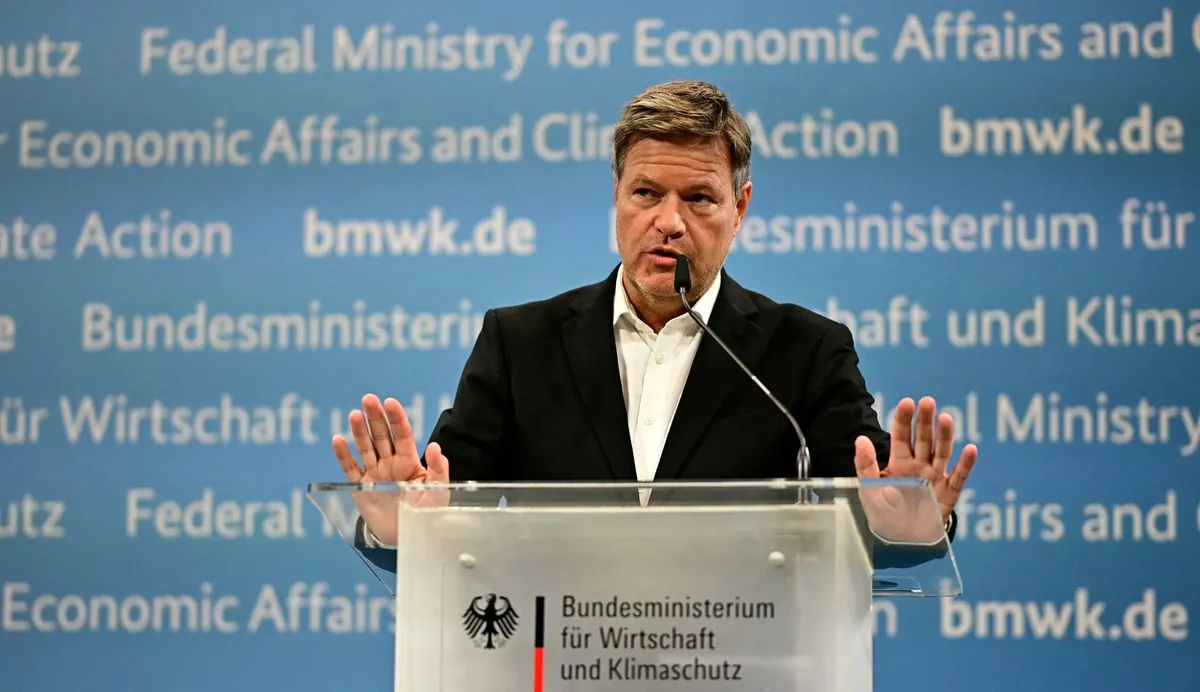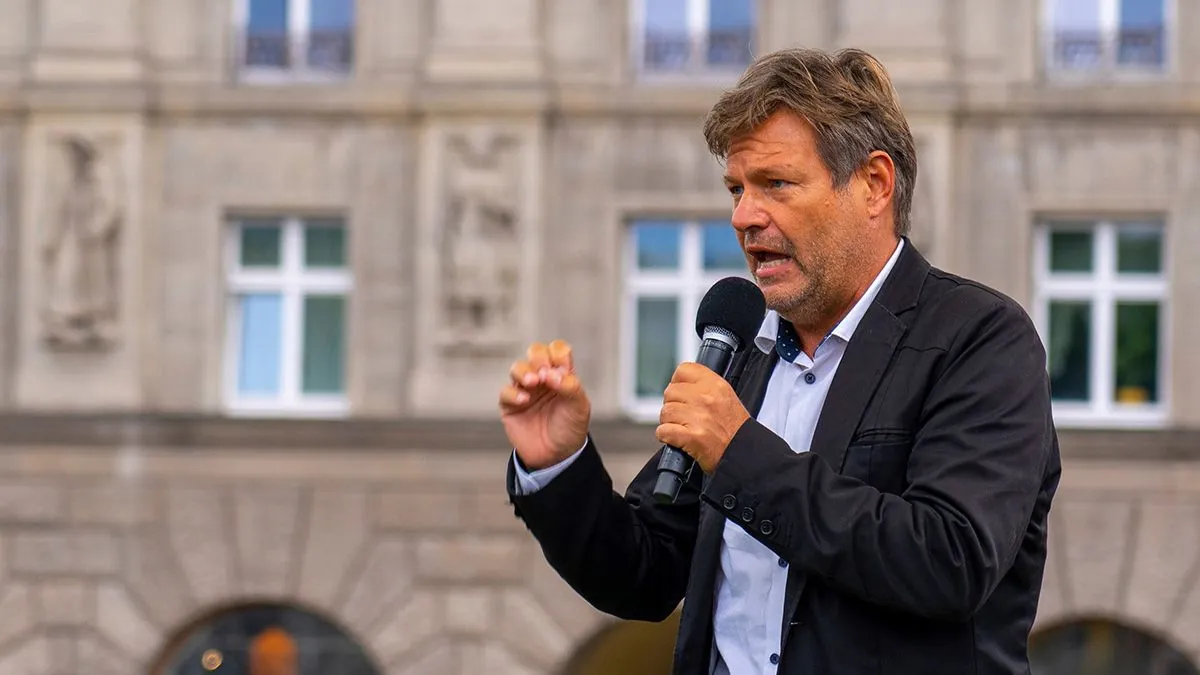German Green Party's Climate Vision Faces Political Hurdles
Robert Habeck's attempt to transform Germany's Green Party and climate policy encounters challenges. Despite initial popularity, the party now struggles with leadership issues and declining support for ambitious environmental measures.

In the aftermath of Germany's 2021 national election, Olaf Scholz emerged victorious by emulating Angela Merkel's cautious political approach. However, it was Robert Habeck, the Green Party leader and newly appointed vice chancellor, who initially captured the public's attention with his distinct political style.
Habeck, 53, aimed to reshape the Green Party's image and broaden its appeal while maintaining its core commitment to radical climate action. His strategy involved engaging with diverse segments of society to build consensus around ambitious environmental policies.
"Whoever votes for us knows that they're changing something of enormous consequence."
The Russia-Ukraine conflict in 2022 presented both challenges and opportunities for Habeck's climate agenda. As minister for economics and climate change, he faced the immediate task of securing Germany's energy supply while simultaneously pushing for a transition to renewable sources.
Habeck's initial response to the crisis earned him widespread approval, with his approval rating reaching 60%. He addressed the public regularly, explaining the complexities of the situation and emphasizing the need for energy conservation.

However, the implementation of concrete climate policies proved challenging. Habeck's attempts to balance environmental goals with economic concerns led to compromises that disappointed both climate activists and industry representatives. For instance, the government's revised climate program in spring 2023 weakened several environmental regulations and targets.
Habeck's approach to climate policy reflects the Green Party's evolving strategy. Founded in 1980, the party has roots in environmental activism but has increasingly sought to appeal to a broader electorate. This shift is evident in Germany's ambitious goal to achieve carbon neutrality by 2045, a target that requires significant changes across various sectors.
The minister's efforts to implement a new heating law in 2023 faced strong opposition, highlighting the political challenges of enacting bold climate measures. The controversy damaged Habeck's reputation and exposed the limitations of his consensus-building approach.
As of 2024, the Green Party finds itself at a crossroads. Despite initially high hopes, the party now grapples with leadership issues and declining public support. The next German national election, projected for 2025, will be a crucial test for Habeck and the Greens' climate agenda.
Germany's progress in renewable energy, with 46% of electricity production coming from renewable sources in 2023, demonstrates the potential for change. However, the country's position as the world's fourth-largest economy by nominal GDP also underscores the complexity of balancing economic interests with environmental goals.
The challenges faced by Habeck and the Green Party reflect broader tensions in climate politics. As Germany continues its Energiewende (energy transition) policy, initiated in 2010, the debate over the pace and extent of change remains contentious.
In conclusion, while the Green Party has made significant strides since its inception, translating its vision into concrete policy remains an ongoing struggle. The party's journey from its roots in the anti-nuclear and environmental movements of the 1970s to its current position in government illustrates both the progress made and the obstacles that remain in addressing climate change through political means.


































